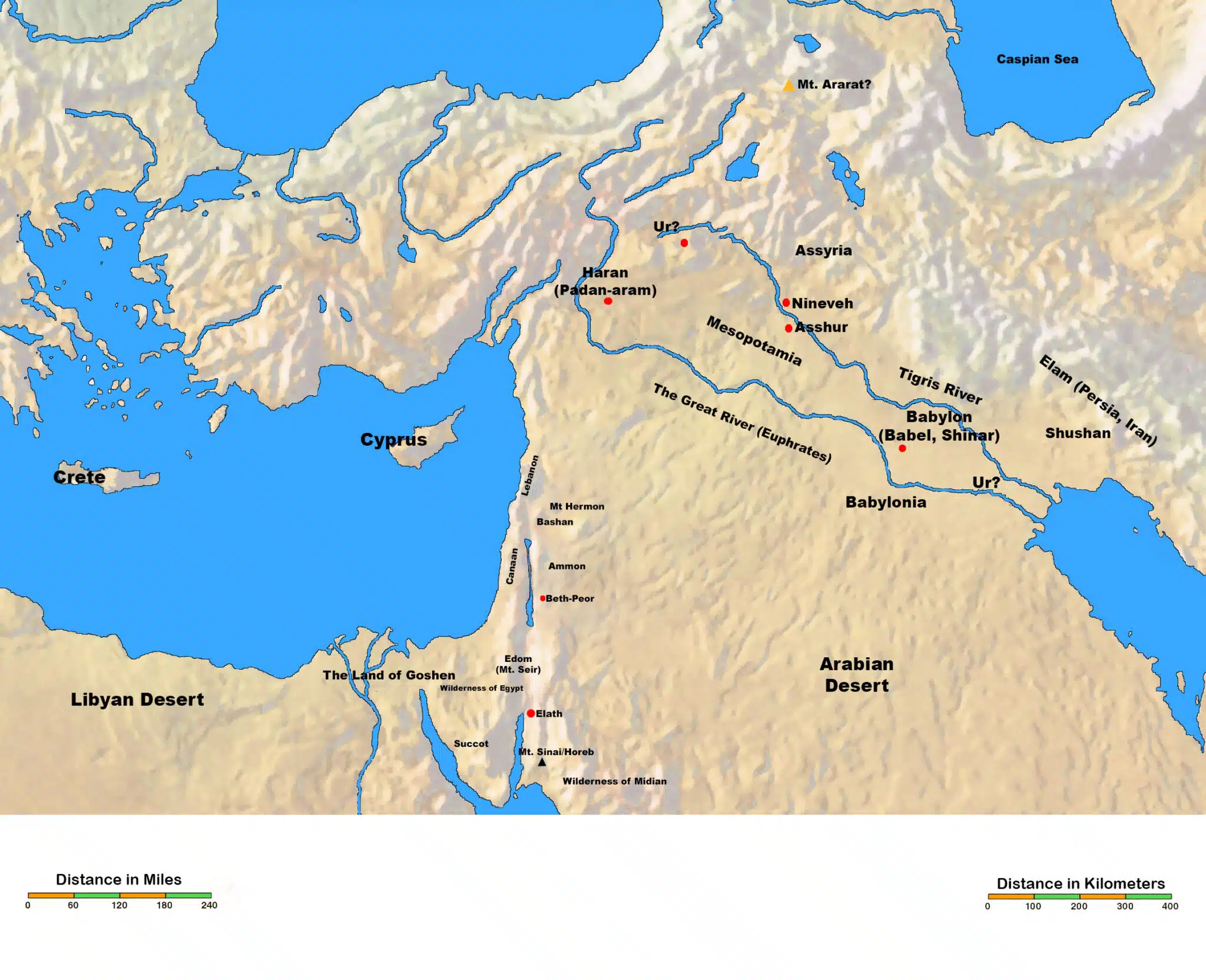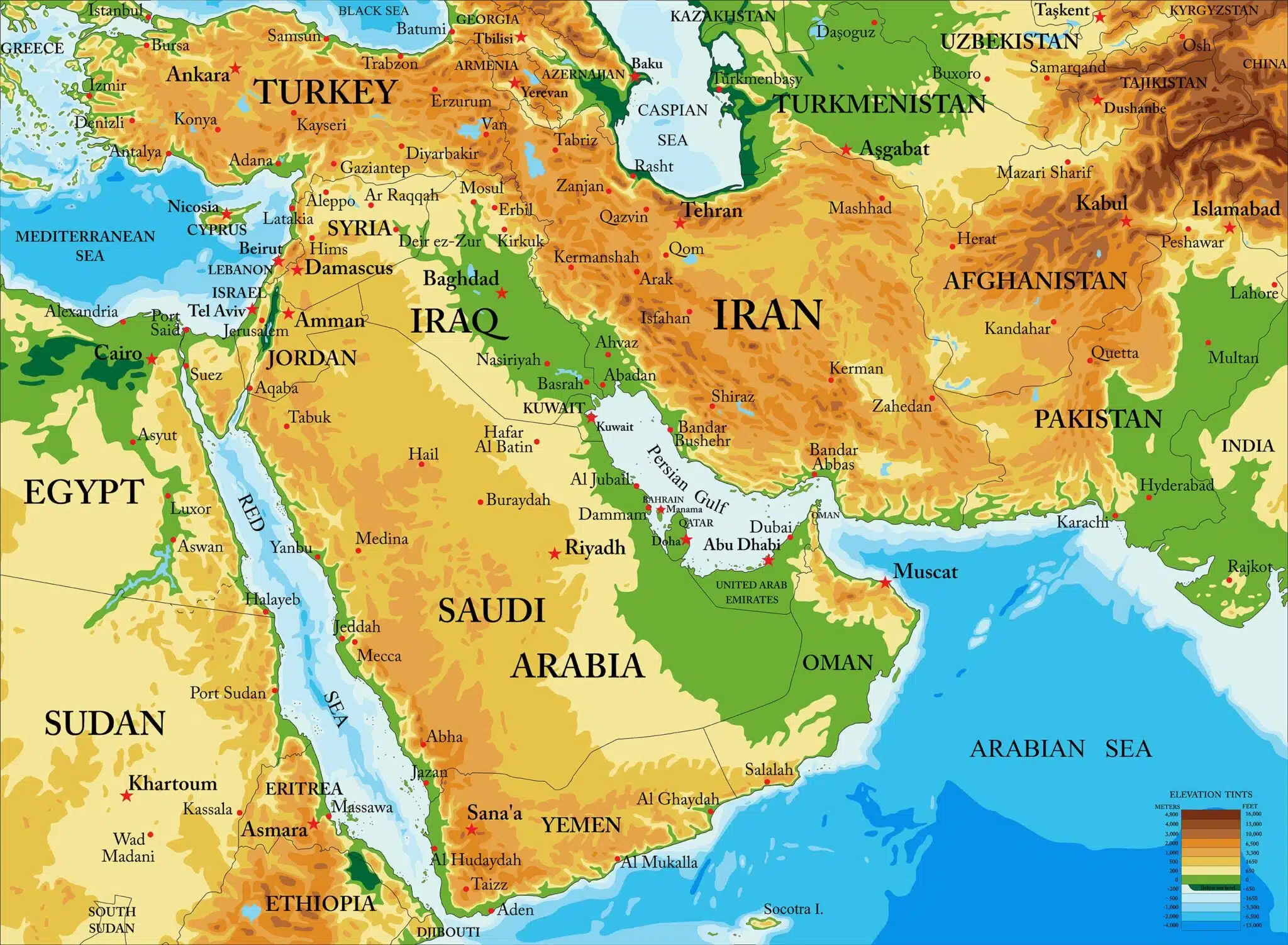Isaac was 40 years old when he married Rebekah. For a time, they are unable to have children. Isaac prays to God for help, and Rebekah conceives. Rebekah’s twins struggle inside her womb, so she asks God why this is.
With the genealogy and life of Ishmael concluded, Isaac and his descendants are the main focus of the rest of the narrative in scripture. Another genealogy begins, but it is unlike Ishmael’s. Ishmael’s was told in a complete summary. All of his sons are listed, as well as their children, and the areas where they settled. Isaac’s genealogy begins, Now these are the records of the generations of Isaac, Abraham’s son (vs 19).
But this passage does not provide a broad summary of his children or where they settled. Rather, this is the beginning of those generations. The remainder of the book of Genesis are the records of Isaac’s generations. Verse 19 is essentially a preamble to the remaining chapters of Genesis. The records are the following narrative, which concern the life of Isaac, the life of his son Jacob, of Jacob’s son Joseph, the origin of the nation of Israel and its twelve tribes, and of God’s continuing covenant with Abraham’s line.
First things first, we are reminded that Abraham became the father of Isaac. The covenant with God begins with Abraham (Genesis 12:1-3). This covenant was conditional at the beginning, with God promising great blessings to Abraham if he would leave his home and relatives and go to the land of Canaan. But when Abraham had fully complied with God’s offer, God’s original covenant was fulfilled in part, when God gave Abraham an unconditional grant of land (Genesis 13:14-17; 15:17-21).
Isaac was the child who miraculously was born of his old father and old mother. Abraham clearly had no problem conceiving children with other women. He had Ishmael with Hagar, and he had six sons with Keturah. But with Sarah, his wife, they could not conceive. It was by God’s choosing and God’s will that Isaac was conceived through them, though they could not believe it when first promised a son.
God chose this son for Abraham to be the son of promise, rather than Ishmael. And God named this son. It was His will that the covenant with Abraham would continue with Isaac:
“No, but Sarah your wife will bear you a son, and you shall call his name Isaac; and I will establish My covenant with him for an everlasting covenant for his descendants after him.”
(Genesis 17:19)
Isaac was forty years old when he took Rebekah, the daughter of Bethuel the Aramean of Paddan-aram, the sister of Laban the Aramean, to be his wife (vs 20). This reminder that Rebekah was the sister of Laban who lived in Paddan-aram sets the stage for the next chapter, when Jacob will run away to Haran and work for his Uncle Laban.
But, just like her mother-in-law Sarah, Rebekah has difficulty conceiving children: she was barren. Rather than attempt to have children through concubines or other wives, Isaac turns to God for help,
Isaac prayed to the Lord on behalf of his wife, because she was barren (vs 21).
It seems God’s intervention is immediate: the Lord answered him and Rebekah his wife conceived (vs 21).
There was difficulty with the pregnancy. Rebekah could feel that the children struggled together within her (vs 22). She had conceived twins, and they moved so much that it disturbed her. They seemed to be fighting one another. But she didn’t necessarily know what the feeling of struggle was, or that she had twins rather than just one developing child. For a pregnant woman to feel so much movement inside her, it would seem natural to be anxious and wonder if something is wrong. For a woman who has had past difficulties conceiving, we can imagine she might experience anxiety that any pregnancy might fail in miscarriage, and the baby may be lost.
So Rebekah asked, If it is so, why then am I this way? (vs 22). The phrasing here sounds awkward in English and its meaning is uncertain. However, we can infer from the context that her primary concern was to understand what was happening inside her. It seems the phrase it is so is an acknowledgment that Rebekah recognized that her child was of the Lord (Genesis 25:21). So it seems she was saying “Since this is of the LORD, what does this turmoil inside of me mean?”
Appropriately, she, like Isaac, turned to God in her time of need: she went to inquire of the LORD (vs 22) what was happening to her child in her womb. The LORD will answer her inquiry in the next section.
Biblical Text
19 Now these are the records of the generations of Isaac, Abraham’s son: Abraham became the father of Isaac; 20 and Isaac was forty years old when he took Rebekah, the daughter of Bethuel the Aramean of Paddan-aram, the sister of Laban the Aramean, to be his wife. 21 Isaac prayed to the Lord on behalf of his wife, because she was barren; and the Lord answered him and Rebekah his wife conceived. 22 But the children struggled together within her; and she said, “If it is so, why then am I this way?” So she went to inquire of the Lord.
Check out our other commentaries:
-
Obadiah 1:17-21 meaning
While Edom will be crushed by God’s judgment on the day of the LORD, Israel and Judah will be restored....... -
Numbers 8:8-11 meaning
Verses 8 – 11 are concerned with inward purification. Since this could be done only with sacrifice, a grain offering and a sin offering were...... -
Psalm 16:9-12 meaning
Our heart is glad and we rejoice, not so much in earthly things or as a result of our circumstances, but because of who God...... -
Obadiah 1:8-9 meaning
The LORD declares that He will destroy the wise men of Edom. Every citizen of Edom will be slaughtered....... -
Genesis 17:21-23 meaning
When God had finished talking, Abraham immediately took all the males in his household and circumcised them as God had commanded. ......




